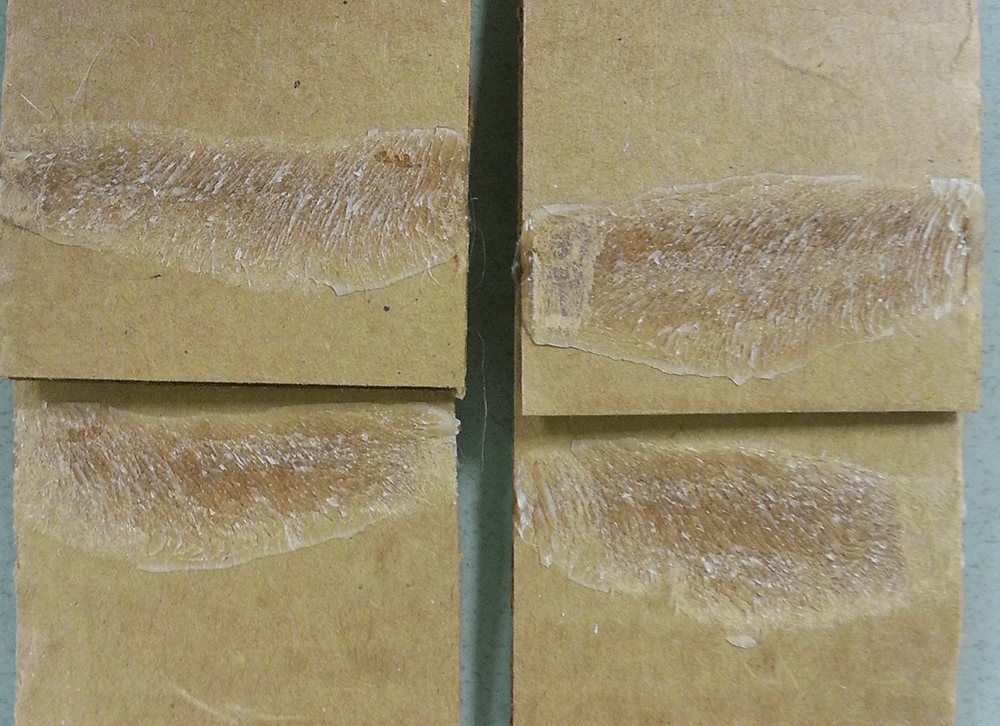Fall is in full swing and temperatures are dropping. These colder temperatures can affect your hot melt and water-based adhesive applications and bonds, so we’ve compiled some solutions for these common problems.
Using Hot Melts
Low temperatures increase adhesive viscosity, which can cause messy stringing during hot melt application. But with a few adjustments, you can reduce the amount of stringing and waste.
Undesirable stringing may be caused by a low application temperature, low ambient temperature or cold nozzle. These issues can all be resolved by increasing the nozzle head temperature as well as the pot and hose temperature in 5 degree increments. Doing so will decrease the viscosity, which should decrease the chance of stringing.
Cold air and substrate temperatures can also increase the set speed of hot melts. Once again, this can be combated by increasing the application temperature in 5 degree increments.
After bonds have been made, low temperatures can also cause “cold-cracking.” This occurs when the bond is exposed to excessively cold temperatures, perhaps during transport or storage conditions, causing it to fail. The hot melt adhesive may have appeared to have “cracked” upon observation of the bond line. You should try minimizing exposure to extreme cold, or change to an adhesive with better cold resistance. To learn more about the impact of cold cracking on packaging, view our article on Troubleshooting Case & Carton Failures: Cold Resistance.
Using Water-Based Adhesives
Cold temperatures can cause freezing of water-based adhesives during transportation. We recommend ordering product as early as possible in the week to reduce the likelihood of it sitting in a truck for a prolonged period of time.
Water-based adhesives used in cool plant conditions can become thicker than normal, causing stringing and poor machining. They also tend to have a slower set speed since water releases more slowly in the adhesive. We advise you to apply the adhesive in ambient room temperatures to avoid such issues. To find out more about the effect cold temperatures have on adhesive, read The Winter Guide for Water-Based Adhesives.
Let Us Help You
RS Industrial offers a full selection of adhesives, including those that are formulated to withstand colder temperatures. If your current adhesive is stringing or experiencing cold-resistance failures, call us at 1-800-844-1740 or use the contact form below. One of our technical analysts will be happy to help you troubleshoot the issue, or provide one of our cold-resistant adhesives for your application.

